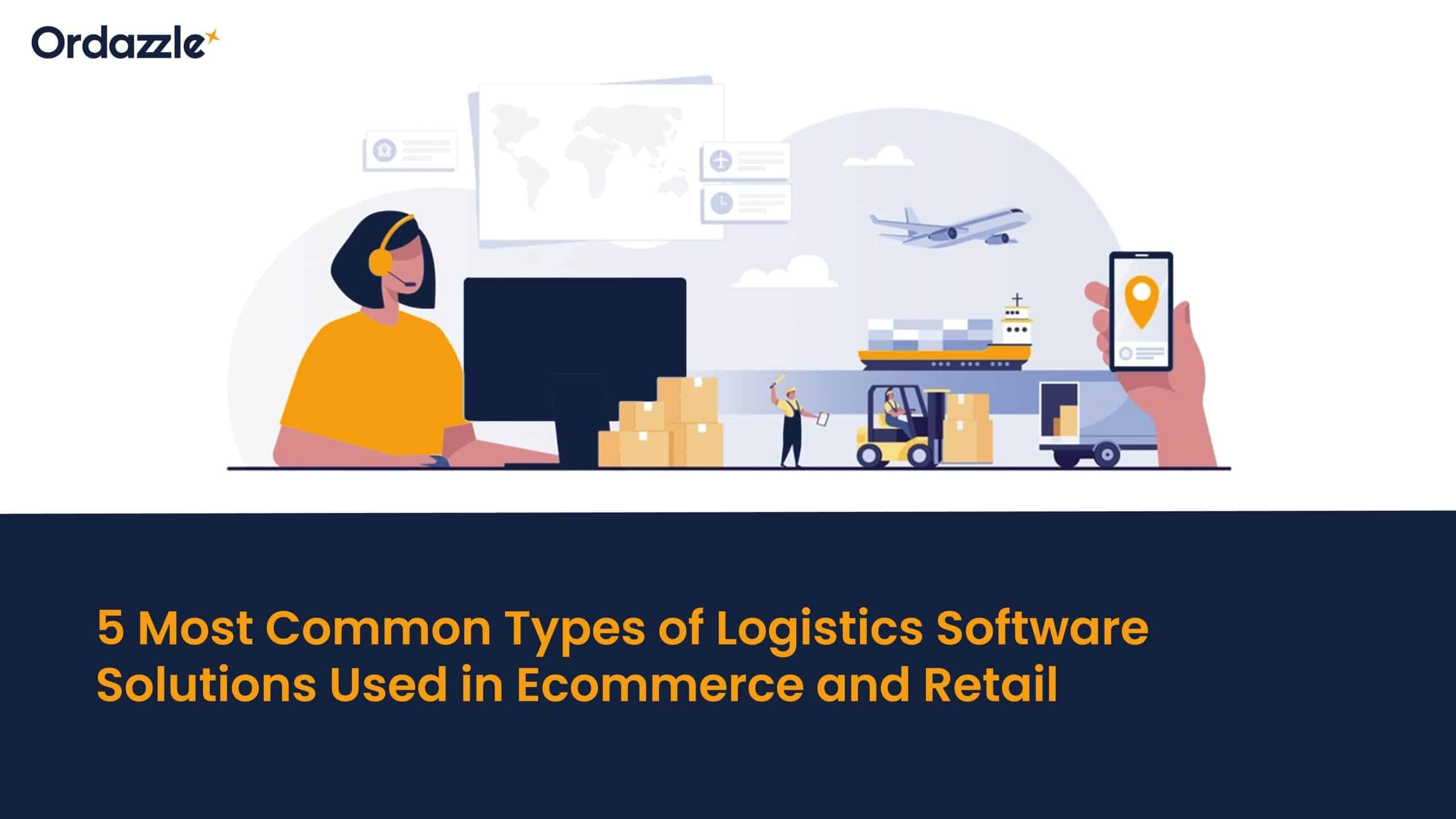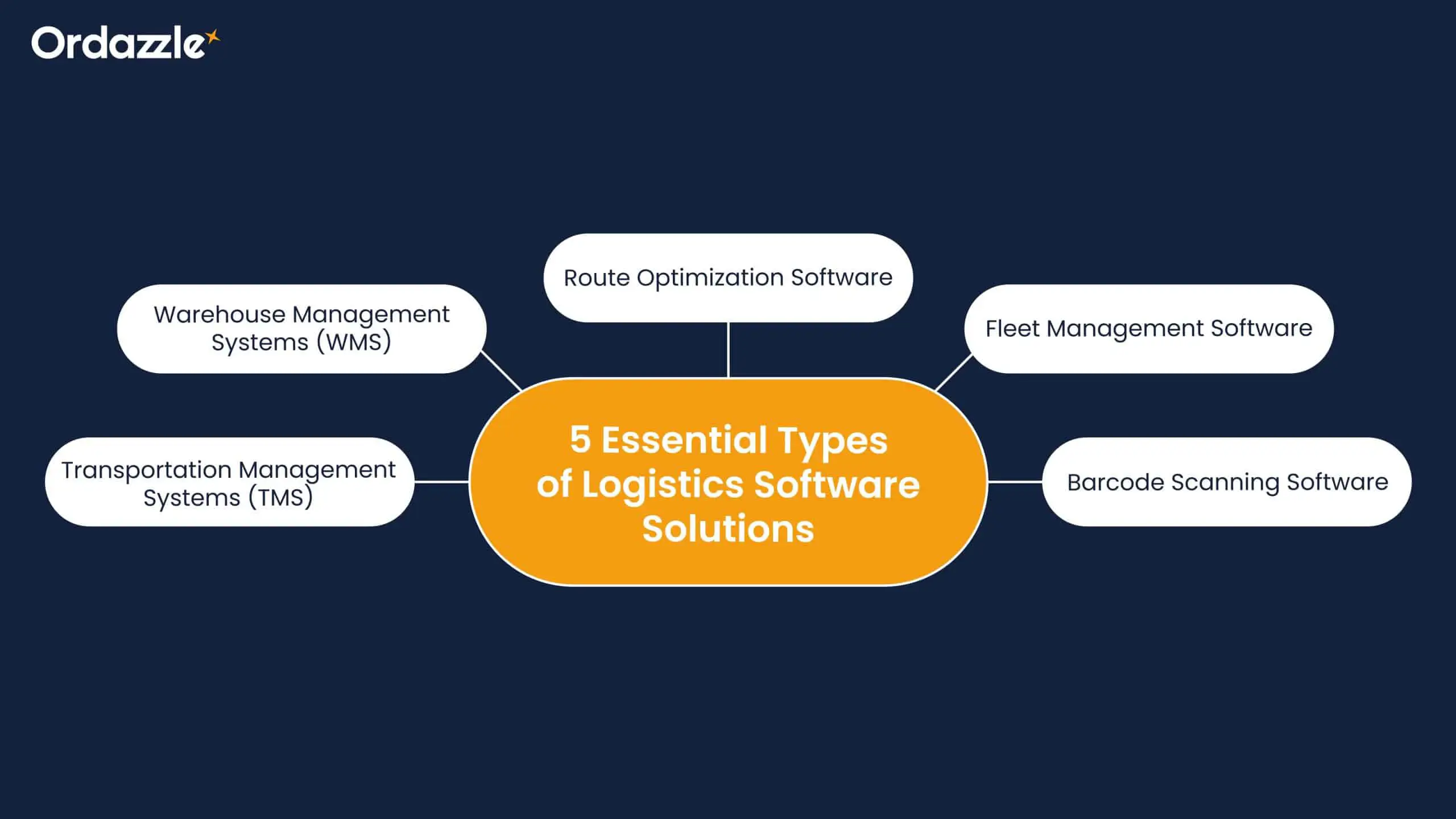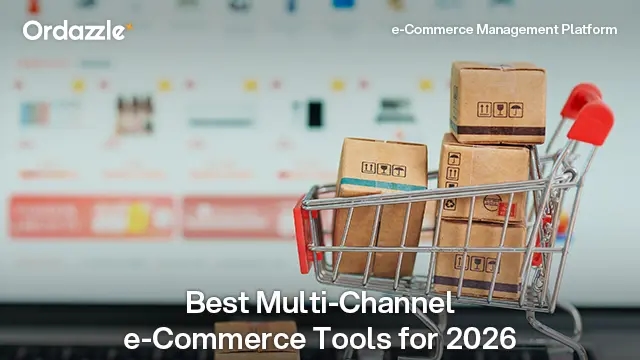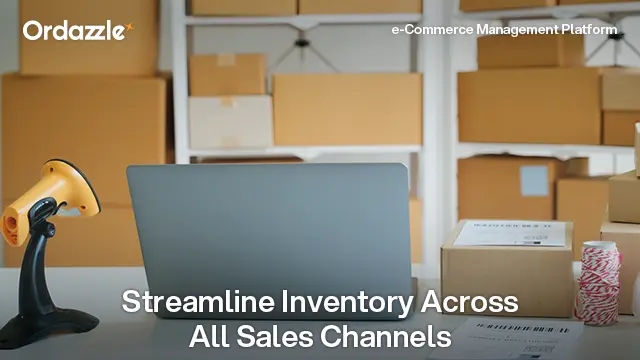5 most common types of logistics software solutions used in e-Commerce and retail

Let’s face it: logistics today serves as more than a business function; it’s a vital link that keeps modern trade and commerce on track.
In fact, it can be considered the backbone of new-age businesses, especially those in the e-Commerce and quick-commerce industries, as these operate on modern models and customer requirements that are different from traditional long-distance logistics.
Given the fast-paced nature of business in these industries, many businesses struggle to maintain the efficiency of commerce.
The good news is that there are various types of logistics software solutions that can provide you with many opportunities to cut expenses and improve productivity.
In this blog, we’ll share a comprehensive list of various types of logistics management solutions based on the industry and businesses served.
5 essential types of logistics software solutions

Today, e-Commerce solutions companies offer a wide selection of logistics solutions designed to solve business issues, irrespective of business niche. Here are some of the common types:
- Transportation management systems (TMS)
A TMS is a logistics software solutions that helps businesses plan, execute, and optimise the incoming and outgoing movement of goods. It also makes sure that the shipment is compliant and that everything is documented.
Usually, a TMS works as a component of a larger supply chain management (SCM) system, providing visibility into day-to-day transportation operations and compliance to ensure timely delivery of goods and freight.
Be it land, air, or sea, transportation management solutions make it easier for you to streamline the shipping process and optimise operations.
- Warehouse management systems (WMS)
Warehouse management plays an essential role in logistics management solutions.
It encompasses the processes and principles involved in running the daily operations of a warehouse. When you zoom out, this includes organising warehouse space, managing inventory, scheduling labour, and ultimately fulfilling orders.
Zoom in closer, and effective warehouse management becomes largely about integrating and optimising each process to ensure all aspects of warehouse operations work seamlessly in an interoperable manner to improve productivity and lower costs.
A dedicated warehouse management system makes these tasks as error-free and streamlined as possible, making data available across the board in a real-time manner, and keeping all hands on board informed and updated.
- Route optimisation software
Route optimisation software is a tool that helps retail businesses detect the most efficient routes for delivering services and goods.
It can help companies save money on labour costs and fuel, improve customer service, and reduce customer service.
When optimising a route, this type of logistics software solutions considers many factors, including source and destination, delivery time window, stop duration, stop priority, and vehicle capacity.
- Fleet management software
Fleet management encompasses a series of processes that allow businesses to manage and see all information associated with their fleet vehicles and other assets, right from acquisition to end of life.
As technology and customer expectations advance, more businesses are incorporating fleet management software into their tech stack for better visibility and vehicle utilisation, to manage the cost of ownership, and to improve maintenance planning.
With fleet management logistics software solutions, businesses have access to the right data in an easy-to-understand format. The platform provides information that stakeholders need for accurate decision-making, including location, vehicle diagnostic data, driver behaviour, and beyond.
Fleet management software provides businesses with access to the right data in a format that is easy to understand. The cloud-based platform provides the information, decision-makers need for success, from location information and vehicle diagnostics to driver behaviour and beyond.
- Barcode scanning software
In shipping and logistics, barcode labels are used to collect detailed delivery and order information that can be easily scanned by a barcode scanner as the shipments move through various checkpoints through the order-to-delivery process.
RFID and barcode technologies are largely used to control and manage inventory. By reading RFID tags and scanning barcodes, businesses can maintain accurate stock levels, optimise reorder points, and monitor inventory movement.
Ordazzle – The one-stop logistics software solution for all your e-Commerce needs
A rapid transformation is underway in the e-commerce industry, and businesses must keep up to retain their competitiveness. With end-to-end logistics software solutions, you can get benefits that extend well beyond process streamlining.
Want valuable insights, improved internal workflows, and optimized inventory? That’s what we at Ordazzle offer. With our solutions, you can make your teams, processes, and overall business more flexible and adaptable.
From mobile accessibility to route planning, our features can significantly improve proficiency and customer satisfaction.
Connect with us to optimize your logistics processes for success today!


